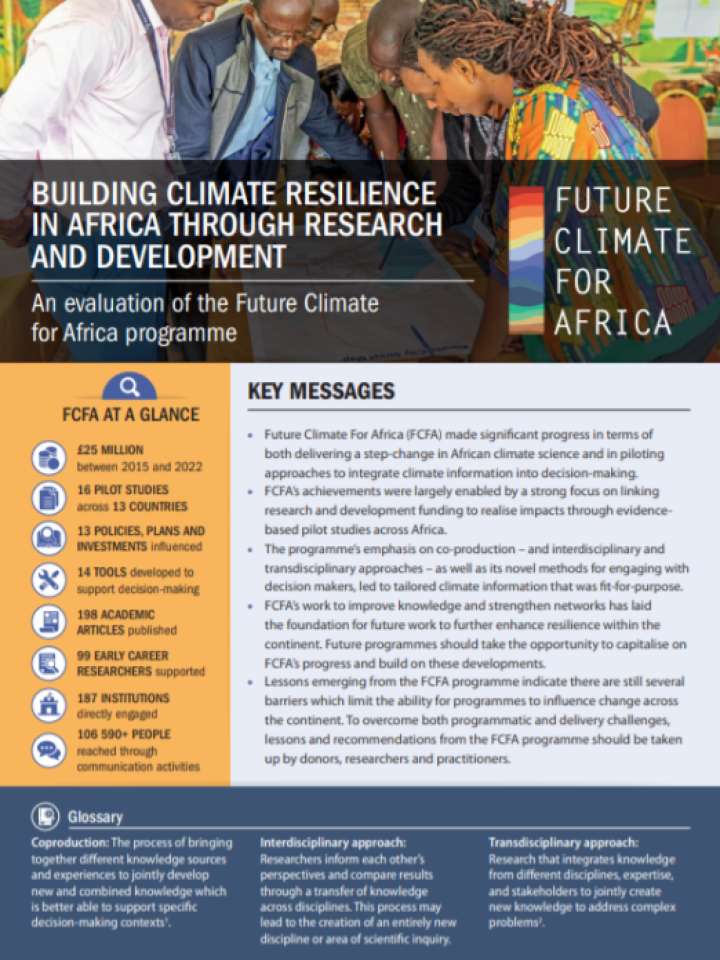Building climate resilience in Africa through research and development
This article synthesizes the findings from an evaluation of the Future Climate For Africa (FCFA) programme over the past six years of implementation. The evaluation aimed to assess the impacts, outcomes and achievements of the programme in relation to the programme Theory of Change (ToC), with a particular focus on ‘Improved medium-term (5–40 year) decision making, policies, planning and investments by African stakeholders and donors’. Rather than focusing on progress at the output level, the evaluation considered the intended, expected, and unexpected outcomes or changes that led to progress towards the planned impacts of the programme.
The article highlights key recommendations for future programmes aiming to build climate resilience. Programmes must create tailored approaches to linking climate research and development. An evidence-based design process, which includes context analysis and stakeholder mapping, ensures programmes are addressing local needs. Encouraging and supporting greater collaborative efforts in climate science research is vital in order to make rapid advances in filling gaps in the scientific knowledge of Africa’s climate, particularly cross-institutional research through South–North and South–South partnerships. Programmes must make provisions to bridge the implementation gap and apply a strategic approach to capacity development. Design-wise, programmes must develop a clear Monitoring, Evaluation, and Learning strategy and extend the program time frame and make provisions for continuity.
Explore further
